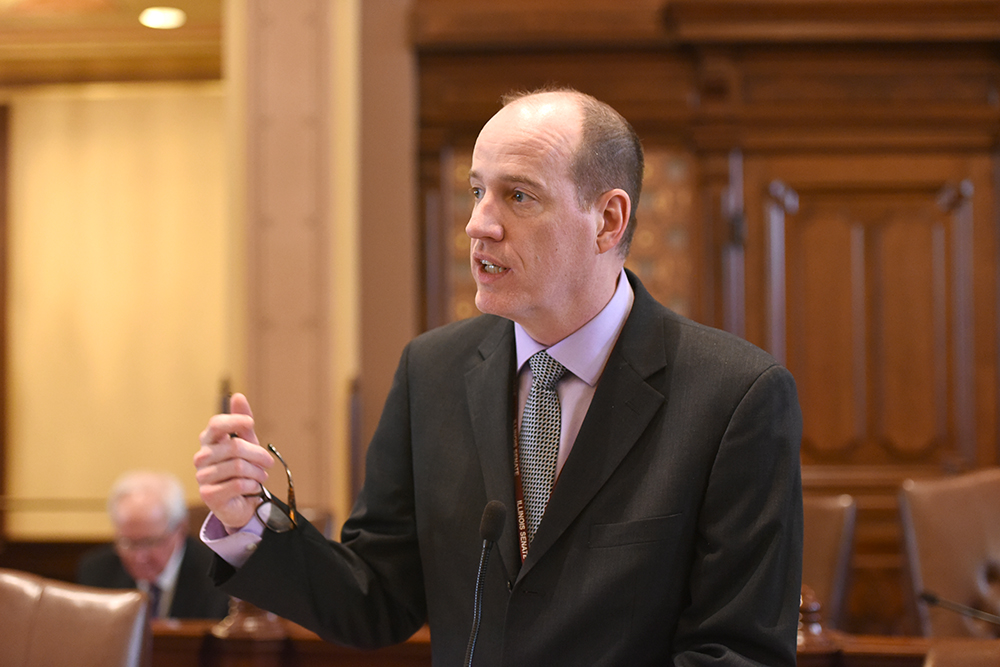
SPRINGFIELD – State Senator Bill Cunningham’s legislation to deter threats from being made against schools on social media was signed into law by Gov. Pritzker this summer.
“False threats are not only terrifying for students, parents and faculty, they also divert emergency response resources away from places where they’re really needed,” said Cunningham, a Democrat who represents portions of Chicago and the southwest suburbs. “This legislation will provide us with a mechanism to impose consequences that will deter these threats from being made.”
Under Illinois law, a person commits the offense of disorderly conduct when he or she calls 911 for the purpose of making a false complaint or providing false information, including a threat against a school.
House Bill 1579 expands the offense to include threats made on any platform, including social media. Current law only covers threats made by telephone or threats that specifically mention the use a bomb.
If an individual is convicted of transmitting a false threat, he or she must also pay for the costs of the emergency response the threat triggered.
In drafting the legislation, Cunningham worked closely with State Rep. Kelly Burke (D-Evergreen Park) and Palos Hills Police Chief Paul Madigan, whose department heightened security measures at local schools several times last year due to threats on social media.
“According to law enforcement in my district, threats of violence against schools are increasingly coming through social media rather than the phone and make no mention of a bomb,” Cunningham said. “This trend is only going to continue and we need to make sure we update our statute to keep it aligned with modern concerns.”
The measure further allows the court to order a mental health evaluation for a minor charged with disorderly conduct for transmitting a threat to a school.
“Threats to schools are usually linked with mental health issues that need to be addressed for the benefit of both the individual who made the threat and those around them,” Cunningham said. “Allowing for mental health evaluations in these circumstances will allow law enforcement and medical professionals to work together to best resolve these cases.”
The measure will go into effect January 1, 2020.













 © 2026 Illinois Senate Democratic Caucus
© 2026 Illinois Senate Democratic Caucus